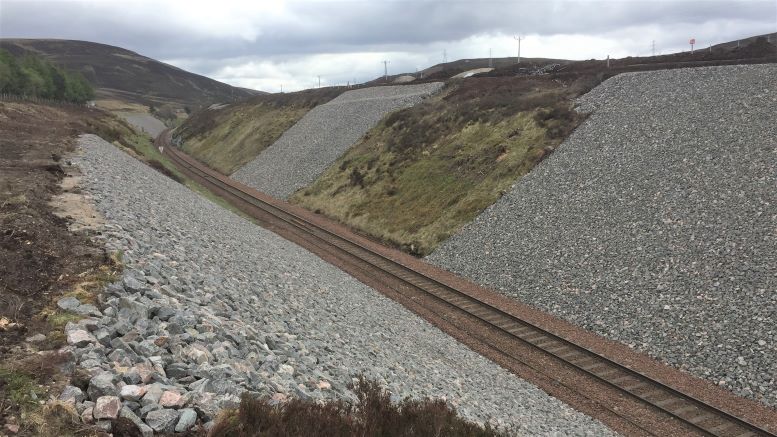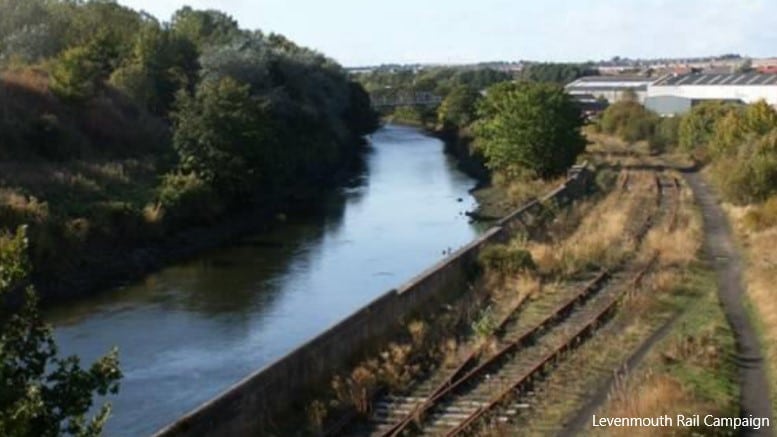
The final phase of a project to improve drainage and stabilise embankments at Slochd between Perth and Inverness on the Highland main line is about to get underway.
The work, which will run until November 2020, will help protect against landslips and rockfall. It will also help prevent flooding in the area, which has caused delay and cancellation to passenger journeys twice in the last twelve months.
A new piped drainage system and earth-bunds will be installed, as well as concrete lined ditches to manage the flow of water away from the railway to culverts and natural water courses.

The £4.8 million project, which is being delivered over two kilometres of railway, has been underway since September 2019 and has targeted known areas of embankment with a history of instability and prone to rock-fall and flooding.
It has already utilised 11,000 tonnes of stone to regrade more than 400 metres of railway embankment, which is 14 metres high in sections. In addition, more than 840 metres of concrete lined drainage channels have been created and rock-netting has been installed where required.

110 metres of ballast retention has also been added to support the crest at the top of the embankments and to provide a new, secure cable-troughing route on the side of the line.
The project is part of a wider package of geotechnical work designed to identify and deliver proactively the work required to address known, or potential, areas where the risk of flooding, embankment slip or rock-fall is high and to avert the associated passenger disruption that these issues could cause.

Network Rail project manager Mark Wilson said, “The unpredictable nature of the Scottish weather means that storms or flooding can happen at any time of the year.
“Milder and wetter weather means that drainage in some areas is no longer fit for purpose and can get overwhelmed. We are proactively replacing and increasing the capacity of drains and culverts to manage the larger volumes of water coming onto the railway from adjacent land on a more frequent basis.
“Work at Slochd will address a flooding issue which has caused the line to be closed twice in the last twelve months – once due to snow melt and the other due to an August storm. It will also ensure that the surrounding drainage and embankments are future-proofed to protect the railway from the impact of increasingly unpredictable weather.”







Be the first to comment